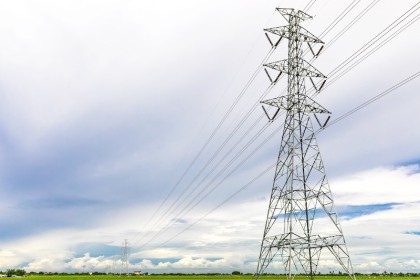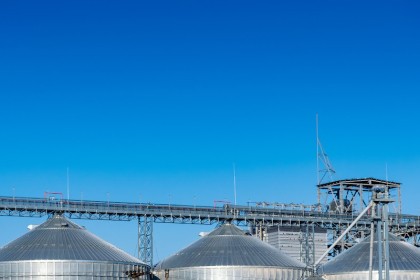Fuel Theft Is A Growing Concern For South African Fleets
Fleet Management, Fuel Management
Fuel consumption is one of the biggest and most important operational costs for any vehicle fleet company. The expenses that go into fuel consumption, storage, distribution and monitoring are critical for the effective functionality of South African vehicle fleets. Unfortunately, with the rising costs of petrol and diesel in South Africa – and around the world – fuel theft is a growing concern for fleet owners and managers.
Understanding when, why and how fuel is going missing is key for preventing further losses and creating a more secure and effective fuel management system. Petrol being stolen, lost or mismanaged can have dire consequences across the entire fleet. Reduced profits, increased operational costs and an unreliable corporate culture can begin to fester and, subsequently, weaken the overall business.
With staff wages, utilities, driver training, vehicle maintenance, tolls, insurance and the fuel itself, there are a variety of costs associated with operating a fleet company. The causes of exorbitant annual petrol costs can be the result of a multitude of challenges, such as irresponsible driving habits, poor vehicle maintenance, bad road quality, ineffective fuel management, fuel theft and the price of crude oil on the international market.
Traditional fuel management systems and manual reporting procedures are unable to keep up with the latest technological innovations and growth in the on-demand economy impacting fleet companies. Fortunately, fleet owners and managers have a variety of telematic tools and digital services to help improve their fuel monitoring and management systems. The first step in combating the scourge of fuel theft is to be aware of how it happens.
Let us take a look at some of the most common causes of fuel theft, loss and mismanagement:
Bad Fuel Storage Security
Most fleet companies, commonly, store large quantities of petrol and diesel in an onsite or offsite storage facility. The storage required for the amount of fuel used by vehicle fleets is a daunting and risky proposition for fleet owners. Fuel theft becomes a much greater concern when fleet companies have poor fuel storage security and procedures. Keep your fuel safe and secure before it is distributed to your fleet.
False or Mistaken Reporting on Fuel Consumption
The biggest problem with traditional or manual logging systems is that false information can be easily entered and recorded to coverup fuel theft, mistakes or incompetence. Fuel is a very valuable commodity and can tempt drivers to fill other vehicles, misreport fuel consumption, hide poor driving behaviour or conceal their lucrative and deceitful fuel theft.
Syphoning Fuel Out of the Tank
Many modern vehicles have protective measures to prevent the old-fashioned ways of syphoning fuel out of their tanks. Although, a pipe and container are much less effective these days, there are still means by which criminals and untrustworthy vehicle operators can pump fuel out of a tank. These measures are often destructive to the vehicle and create additional maintenance costs for fixing broken fuel feeding systems.
Drivers or Petrol Attendants Underfilling Tanks
For many years, receipts, logbooks and different fuel metrics were kept and compiled manually. Without effective fuel surveillance and digital monitoring, it is easy to exploit manual fuel management systems and steal fuel. Video, GPS and other vehicle telematics have been designed to support and enable fuel management systems to prevent the underfilling of fuel tanks, misreporting of fuel usage or diverting of fuel sources.
Odometer Tampering
Odometer tampering is a real concern for fleet companies in South Africa. Older car models have simple computing that is easily tampered with and, even, later models have some exceptions in their onboard systems that allow for odometer tampering. Reducing, increasing or pausing the mileage on a fleet vehicle is an effective way to hide fuel theft. For example, if the vehicle has travelled more kilometres, it makes sense that fuel consumption is higher than expected.
What can be done about it?
Fuel theft is a serious concern for South African fleet companies and can cause huge losses over time. It is critical the owners and managers are aware of the methods used by criminals and the tools that are available to prevent them. For more information on what you can do to prevent fuel theft, take a look at A Few Tips for Preventing Fuel Theft in Your Fleet.
Modern fuel management systems are designed with vehicle fleet companies in mind. They provide real-time monitoring of fuel usage, GPS tracking of vehicle movements and digital interfaces that can be utilised from a central online hub. Vehicle telematics have been integrated into fuel management solutions and overall fleet management systems to ensure all aspects of fleet operations are running smoothly.
If you are looking for the latest in fleet management solutions or are wanting to integrate a fuel management system into your larger fleet operations, speak to one of our expert consultants at Landmark Tracking.
Source: https://www.landmarktracking.co.za/fuel-theft-is-a-growing-concern-for-s...












